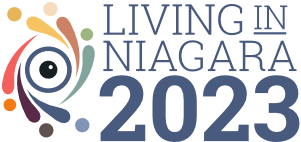Very young children and their families, youth and new graduates, and newcomers to Canada require community support and resources to get started. Investment in creating positive conditions for early childhood development, young people starting out, and new immigrants and refugees strengthens these people’s ability to contribute to a vibrant Niagara.
National Context:
The rate of Canadian children aged 0 to 5 having access to regulated, centre-based child care has more than doubled, from 11.5% in 1994 to 24.1% in 2014. Early childhood education plays a vital role in later educational achievement, provides a foundation for lifelong learning, and improves overall health.
Nine out of ten students complete high school in Canada. In 2014, 28% of Canadians held a university degree, compared to 17% in 1994. On both of these measures, Canada ranks 4th among OECD (Organisation for Economic Co-operation and Development) countries.
Reported experiences of discrimination based on ethnicity in Canada have decreased from 13.3% in 2002 to 8.0% in 2014. Of those Canadians who did experience discrimination based on ethnicity, most (37.5%) were under the age of 35. With more than 1 in 4 members of a visible minority reporting experiences of discrimination, Canadians still have work to do to ensure an inclusive society.
Source: Canadian Index of Wellbeing National Report, 2016
Rating
People Getting Started
How Niagara is doing in the People Getting Started Sector in 2017:
2 – We’re doing well and headed in the right direction
Amount of progress currently being made in the People Getting Started Sector in Niagara in 2017:
B – Moderate progress is being made
Happening Now
- The Niagara Infant Mental Health Committee is raising awareness about impacts of early childhood mental health among professionals working with very young children, such as registered early childhood educators, home visitors, child welfare workers, public health nurses, and social workers.
- Since 2013, Niagara has not had a waitlist for parents applying for financial assistance with child care costs, unlike a number of communities across the province.
- Before-and after-school programs are offered at many elementary schools in Niagara. In September, 2017 the provincial government began requiring school boards to offer such programs (for children 4 to 12 years old) where there is sufficient demand from parents and families.
- Healthy active play initiatives that improve children’s mental and physical health and encourage creativity and collaboration are being offered in Niagara. Examples include the Healthy Kids Community Challenge which focuses on reducing obesity; and new naturalized playgrounds at some childcare centres, which promote play in a natural environment.
- Niagara Region is supporting what is happening in the Niagara-wide community by emphasizing attraction of immigrants and retention of youth ages 20 to 34, within its 2015-2018 strategic focus to increase economic prosperity.
- Due to strong newcomer support infrastructure that exists in Niagara, the Niagara Refugee Assistance Committee gathered 40 organizations to prepare for Syrian refugee families’ arrival in late 2015. Comprised of government, education institutions, settlement agencies and faith groups, the committee focused on housing, health care, fundraising, volunteers and private sponsors to support settlement.
What’s Emerging
- The Niagara Children’s Planning Council is gathering information to support a strategy to increase mental health well-being for children from birth to age 12, by 2025.
- Niagara Region Community Services is coordinating planning and implementation of the provincial government Ontario Early Years Child & Family Centres (OEYCFC) system in Niagara, to promote early learning and development; support parents and caregivers; and provide referrals to specialized services.
- A total of $6.8 million in federal and provincial funds is being invested to support a target of 460 new licensed child care spaces for children aged 0-4 years in Niagara. The intent is to increase quality, accessibility, affordability, flexibility and inclusivity in the licensed childcare system.
- Evidence is showing that youth retention efforts in Niagara would be strengthened by broadening the focus to include people in the 35 to 44 age cohort and their young families.
- Work is underway to describe challenges related to access to mental health services for refugees and other newcomers in Niagara.
Suggested Action Steps
- Advance efforts to strengthen newcomer integration in Niagara, through cultural and language facilitation; access to mental health services; empowerment of women; and increasing inclusion.
- Augment collaborative work being done to better understand the importance of infant mental health; to increase children’s mental health well-being; and to increase access to mental health services by integrating these efforts with the broader work of the Niagara Mental Health and Addictions Charter Action Network.
- When examining evidence related to retention of people in the 35-44 age cohort, look through the lenses of improving quality of jobs, and getting started as a young family in Niagara.
- Focus on an upstream approach to providing equitable access to mental health services for everyone in Niagara, including newcomers who require language– and culturally–appropriate supports.
- Build on momentum from collaborative work done by the Niagara Refugee Assistance Committee, to support Syrian refugee settlement.
Indicators
Starting Out as a Child in Niagara
Starting Out as a Youth or New Graduate in Niagara
Starting Out as an Immigrant, Refugee or International Student in Niagara








